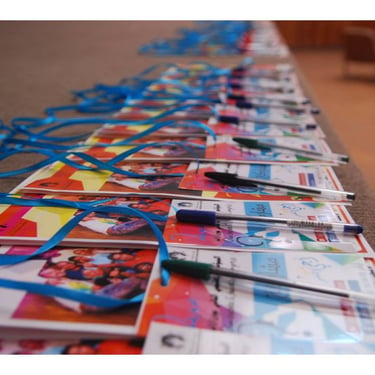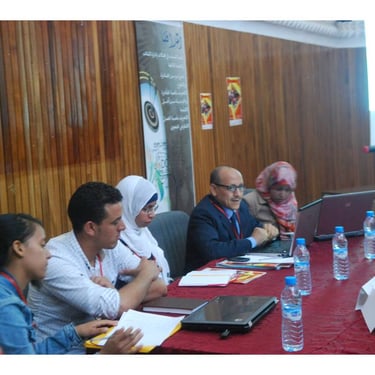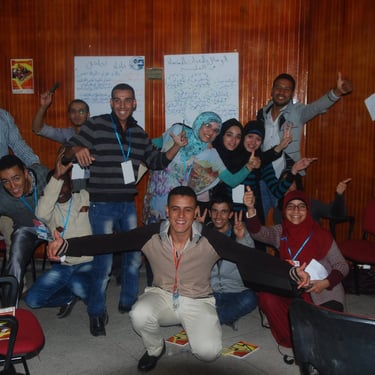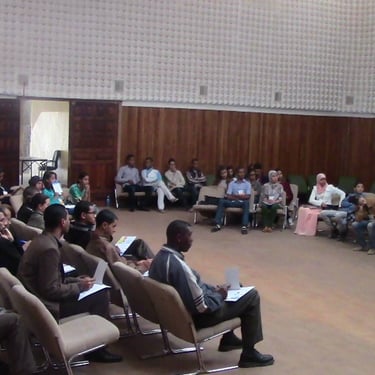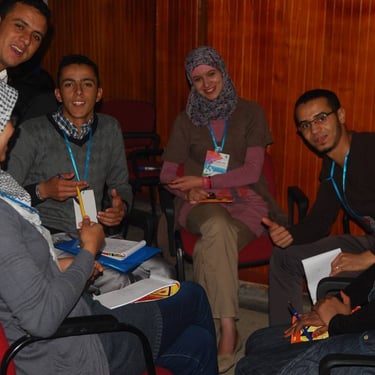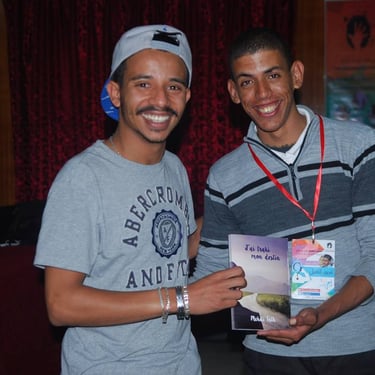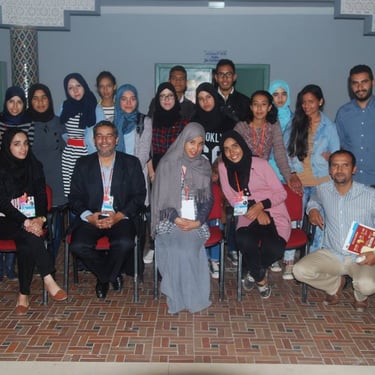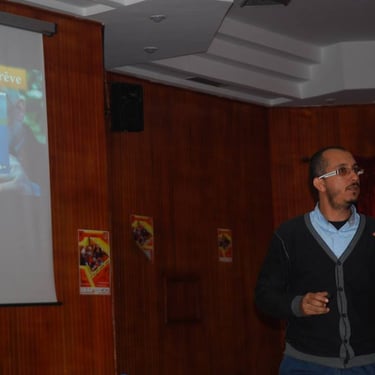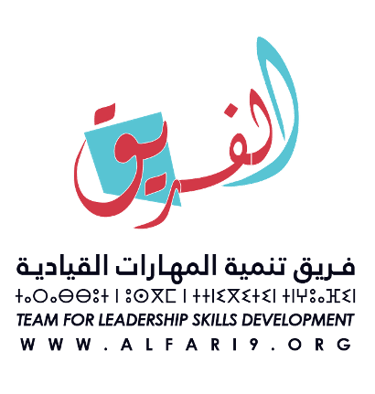Ouarzazate Education Congress
The Ouarzazate Education Congress (OEC) is a bold and youth-driven initiative launched by Alfariq Association to create a space for meaningful dialogue about the future of education in Morocco. This pioneering program was developed in response to the growing need to include students’ voices in the national conversation on education reform. Held in the city of Ouarzazate, the Congress specifically targeted middle and high school students from various local institutions—recognizing them not just as beneficiaries of the education system, but as key contributors to its development. Through participatory dialogue, strategic workshops, and solution-oriented planning, OEC offers students the opportunity to reflect on challenges in the Moroccan education system and co-create ideas to improve it.
+70
Participants
2
+10
Guest speakers
Editions since 2014
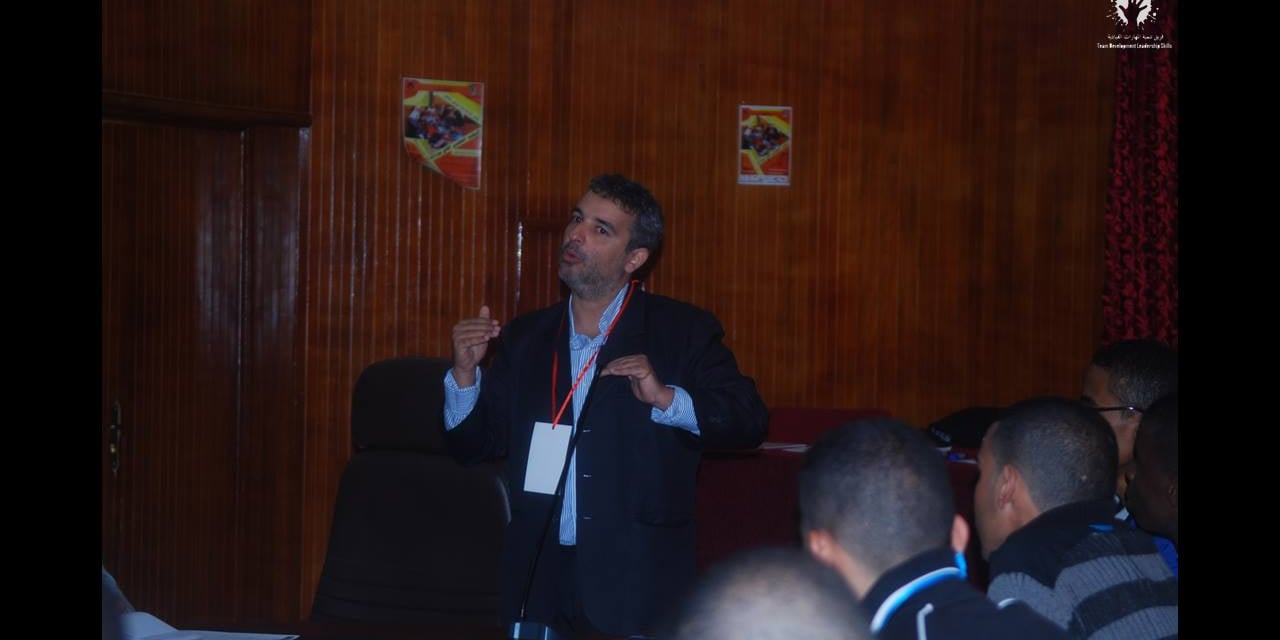

Workshops, Dialogue, and Youth Perspectives
Across its two impactful editions, the OEC has delivered a range of hands-on workshops, youth forums, and high-level talks led by educators, community leaders, and youth mentors. Workshops such as “Systems Thinking”, “Social Innovation in Education”, and “Education and Future Prospects” introduced participants to new ways of analyzing problems and imagining practical solutions. The Congress is known for its emphasis on critical thinking and creativity—encouraging students not only to voice their frustrations but to articulate actionable plans. Participants also had the opportunity to deliver presentations and share their perspectives with peers and guest speakers, turning the congress into a platform for empowerment and intellectual exchange.
A Step Toward Reform and Awareness
The OEC stands as a local but visionary response to national educational challenges. It highlights the importance of parallel educational activities, creative learning environments, and understanding the historical and systemic roots of the current issues in education. In its second edition, held under the slogan “Aji Nhadro Ala Taalim” (“Let’s Talk About Education”), the Congress welcomed voices from different fields to compare international models—such as those in African leadership academy the Moroccan context. It produced a number of key recommendations: the need to encourage creativity in problem-solving, integrate extracurricular activities into school culture, and foster a deeper understanding of Morocco’s educational history. OEC reminds us that real reform begins by listening to students and allowing them to help shape the system that shapes them.
